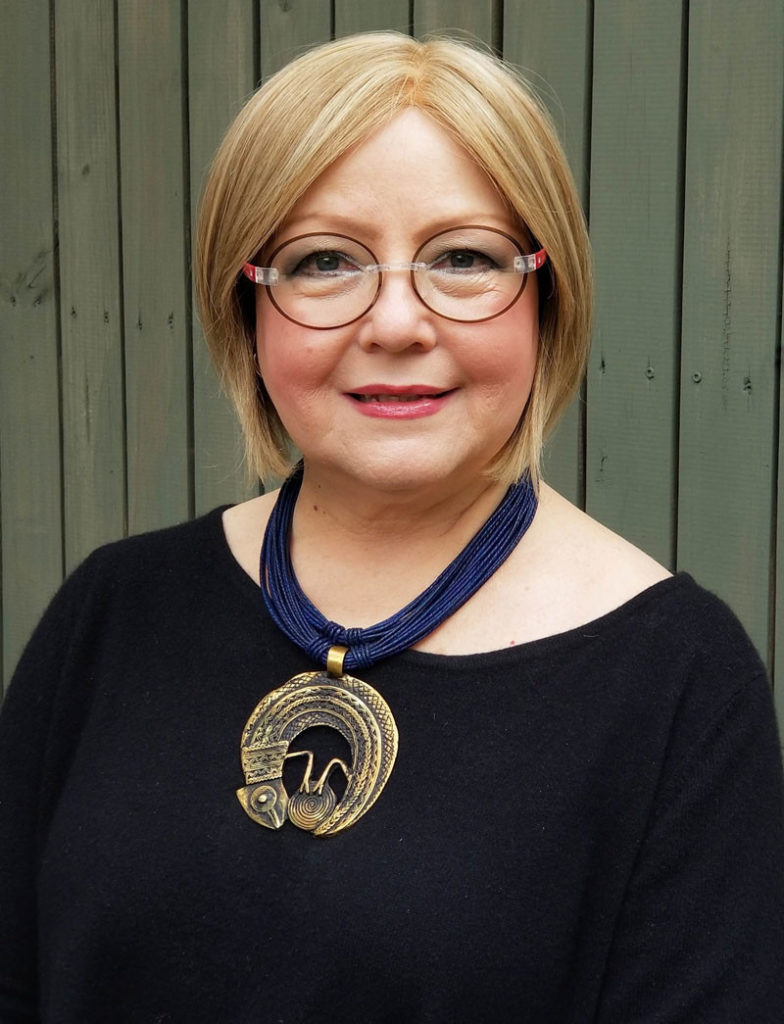
Asociados creativos internacionales recently named Sandy Oleksy-Ojikutu, Doctor en Filosofía., as a Senior Advisor. She is an authority on Sub-Saharan Africa with three decades of project design and implementation experience at the U.S. Agencia para el Desarrollo Internacional.
En esta Q&A, Oleksy-Ojikutu shares her passion for Africaand the value of dialogue parasocios internacionales para el desarrollo.
What drives your passion for Africa?
Oleksy-Ojikutu: I went to live in Nigeria, África occidental, as a consequence of a personal choice. I lived within a NigerianFamily, myhusband’sFamily, now myFamily.
Having leftmy post at Pace University en Nueva York, I smoothly transitioned into joining the Faculty of Education at Nigeria’suniversidad de lagos (UNILAG) training teachers and lecturing on aspects of educational psychology. Allá, I gained tenure and earned a sabbatical year back in New York at Columbia University.
Toward the end of my time at UNILAG, my work with doctoral students focused on traditional counseling for adolescent and young adults analyzing the use of totems, ceremonies and age-grades to mark both the passage of time and the assumption of social responsibilities. My students taught me about the many challenges of growing up in Nigeria (as well as in Liberia, Libia, and Iran!) and about the role of their cultures in aiding their progress. They taught me to really listen without judgment. To be an honest observer and an advocate, from the position of an outsider.
Estosinsights served me well as I expanded my work through USAID across thedoontinent — to listen deeply toindividuos to understand their values and vision without judgment. To valuedifferences, to seeindividuos, comunidades ynaciones in onepanoramicview. And then have adiálogo with host governments, communities and individuals.
When you live in any partdeAfrica and deal with dailyyoifeissues as your own personal issues over an extended time (32 years in my case), you quietly internalize insightinto African Values.I simplywant Africa—as a continent, a collection of nations, and as an amalgamation of individuals— tosucceed and prosper, y I want tosupport that proceso. Thes desire grew over time and through experiences with individual Africans. It continues to grow.
Having worked in development for two decades, what do you think should be the focus of international partners in Africa?
Oleksy-Ojikutu: Basic needs exist acrossÁfrica, ysimilarlyacross the world. Él es a matter of degree. I know folks would like me to identify a hierarchy of needs, but it just is norteoht that simple.Good health servicesensure and protectyoife. Education provides the skillsneeded for a good quality ofyoife. Food security sustainsyoife. Rule ofyoaw and democratic elections maintain peace and security for individuals y elir respective nations. Electrical powerapoya industrialdesarrolloand promotes safety.Trade hubs facilitate personal and national economic growth, etcétera. Desdethese basic needs are simultaneous and not sequential in mostcountries, internationaldesarrollofogonadura negotiate with African nations tobring theiruniquestrengths yskills to specificgeographicáreas aassist in addressing basic needs. Sí, various political considerations are part of the decision making, but the goal isto eliminate dire necesidades (e.g.,extreme poverty) and assist nationsendesarrollaring solutions that encontrarse yservice basic needs.the impacts are cumulative across a broad spectrum of developmentinterventions within a nation.
From your experience, what lessons have international development partners learned from their development work in Africa?
Oleksy-Ojikutu: We have learned a great deal about whatdoes nottrabajar, including imposing external plans in development contexts, ousing development fundingas an effortto secure sustainability. We have learned to do betterpor co-creating with host countries and direct beneficiaries as we designinternational development activities.We have adjusted our perspective on exactly what international development is.
Desde tu perspectiva, what should they do to better translate lessons learned in their programming?
Oleksy-Ojikutu: I end where I began.International development partners need to listen deeply a, and work directly with, their African counterparts and beneficiaries. The resulting dialogue would address the reconciliation of the needs/goals of the development partner and the beneficiaries.
What are the key areas Creative may have to consider doing development work in Africa?
Oleksy-Ojikutu: El personal de Creative escucha atentamente, understanding the value of dialogue with host country counterparts and beneficiaries when designing interventionsin response to solicitations.This type of dialogue is not an easy task — moreover, Creative does this well! Elir resulting submissions have that ring-of-truth. Ellos address donornecesidades yrequirementsmientras respecting yrepresenting the beneficiaries’self-definednecesidades. Perhaps that is the unique ingredient needed for sustainability.